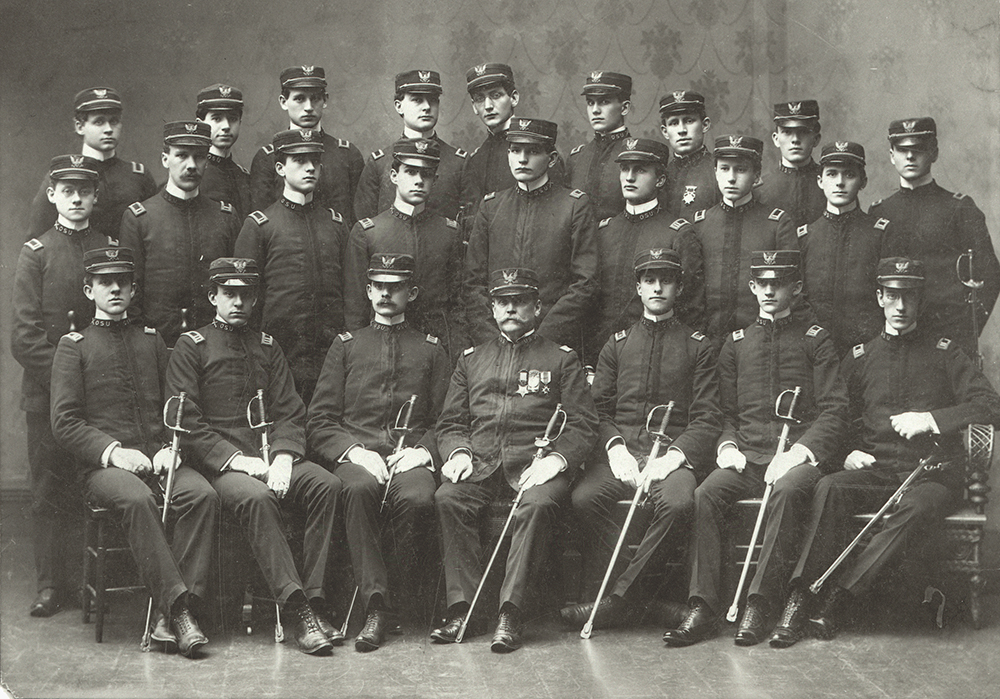Land Grant Mission
As a land-grant institution, the new college was required to teach agriculture, mechanical arts (or engineering) and military science. However, it was not restricted to these subjects. In 1871, the Trustees approved ten different areas of study. They added the subjects of modern and ancient languages, civil polity and vegetable physiology to the required agriculture, mechanical arts and military science. In the end, there was only money in 1873 to hire six faculty members and the president, Edward Orton, who also served as the professor of geology. The Board hired a seventh faculty member a year later, bringing the total to eight.
Military Sword, c. 1900
This sword was issued to Major Charles Napoleon Mooney as a member of the Student Battalion Staff. Mooney graduated from Ohio State in 1900.
Donated by John C. Mooney
Battalion Staff, 1900
Major Charles Mooney, who owned the sword pictured above, is seated in the front row, third from the right.
Military Epaulets, c. 1884
James Wilgus wore these epaulets as an Ohio State student cadet in Company C.
Donated by Peggy Wymore
Cadets and Canons, 1878
Soil Kit Case, c. 1920
This leather case held a soil-testing instrument. The tag shows that the case was sent from the University Agricultural Extension Service to Earl Elmer Barnes, Professor of Soils.
University Farm, 1911
Foundry Lab Apron, c. 1908–1910
George W. Oakes used this apron during classes in the university foundry while he was a student from 1908 to 1910.
Donated by George Hausser









